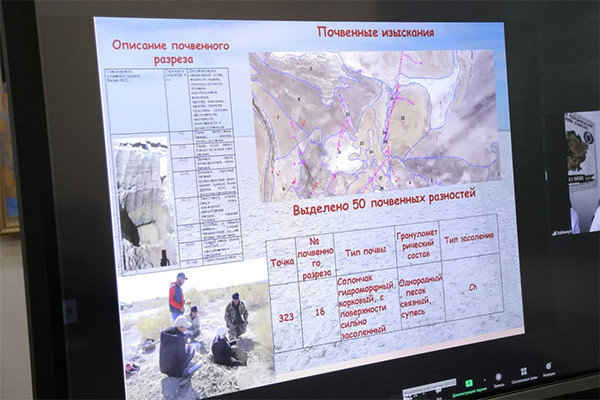
Landscaping of the drained bottom of the Aral Sea: practical work and concrete results
Tashkent, Uzbekistan (UzDaily.com) - The Ministry of Investments and Foreign Trade, together with the State Committee on Forestry, the Scientific Information Center and the Interstate Coordination Water Commission in the format of a videoconference, held a scientific and practical seminar "Monitoring results and further measures for greening on the drained bottom of the Aral Sea ”.
The aim of the seminar was to develop concrete measures for the practical application of the results of monitoring the drained bottom of the Aral Sea, carried out within the framework of the UN Multi-Partner Trust Fund for Human Security for the Aral Sea Region "Solving urgent human security problems in the Aral Sea region by promoting sustainable rural development", implemented UNDP and UNESCO.
The importance of the comprehensive assessment of the dynamics of changes in natural conditions, including the state and size of the drainage area, classification of the landscape, soils, hydrogeological conditions, fauna and flora of the drained area, was noted, 1,500 different locations for forest planting and more than 30 plant species were identified, and over the past 4 years on the drained on the bottom of the Aral Sea, forest plantations were carried out on a total area of 1.7 million hectares.
For these purposes, at the expense of the Trust Fund, special equipment was delivered to the region - excavators, bulldozers, trucks, and the material and technical base of the state forestry in the Takhtakupyr region was improved. As a result, the area of the nursery was increased from 12 to 50 hectares, the volume of forest plantations - from 2200 to 5000 hectares, the harvesting of grain from desert plants - from 8 to 65 tons.
In addition, within the framework of projects, 3.5 thousand residents of 5 remote makhallas of Takhtakupyr district - Beltau, Tazakonys, Mulk, Marzhankol and Zhanadarya - are provided with clean drinking water due to complete reconstruction and commissioning of modern a water treatment plant, installation of 2 desalination systems, installation of 16.6 km of water supply networks and the supply of new equipment for the creation of 6 private sector enterprises.
These measures will significantly reduce the transfer of salt and dust from the drained bottom of the Aral Sea to the neighboring areas, preserve biological diversity, and also make a significant contribution to the development of forestry and an increase in forest areas in Aral Sea region. Consistent and comprehensive work to support the socio-economic development and environmental well-being of the region is one of the strategic tasks of the MPHSTF, which is a single platform for combining the efforts of the state and international organizations in this direction.
As a result of the seminar, the participants noted the important role of the Trust Fund in mitigating the consequences of the Aral Sea catastrophe and discussed the priority tasks for further interaction.